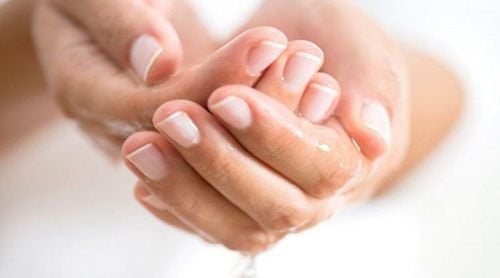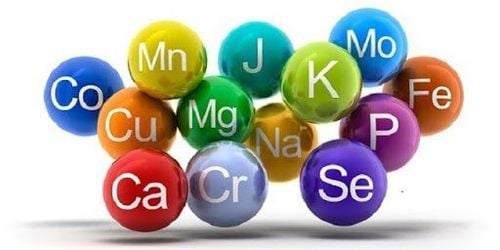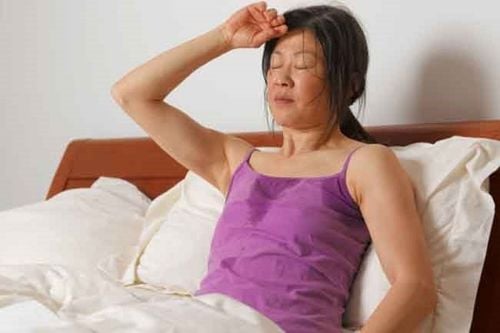This is an automatically translated article.
Night sweats are a common symptom of menopause, but certain medical conditions and medications can also be causes. Most cases of night sweats are not too serious. Treatments for excessive sweating will vary depending on the cause.
1. Causes of night sweats
Sweating is the body's natural cooling mechanism to prevent hyperthermia. The hypothalamus regulates body temperature and stimulates more than 2 million sweat glands. Perspiration evaporates from the skin which helps to release heat energy, thereby cooling the body.
It is normal to sweat at night if the room or the sheets make you too hot. But when you're sweating so much that you're drenching your clothes and bedding, even though the weather is cool, it could be a medical problem. Night sweats is a term that refers to excessive sweating at night, causing many problems in the patient's life.
Adults and children can both experience night sweats, which affects about 3% of the population. Many women face hot flashes and night sweats during menopause. Some other symptoms of women during this period may include: pain during intercourse due to vaginal dryness, hot flashes, insomnia, mood swings, anxiety, forgetfulness or lack of concentration... For men, there is speculation that night sweats are related to low testosterone.
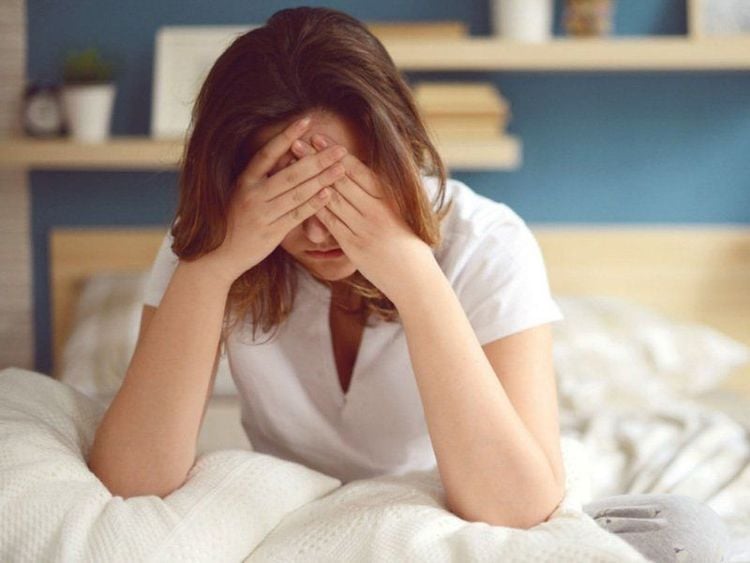
Night sweats can also be caused by other medical conditions, such as:
Hyperhidrosis Untreated sleep apnea Hypoglycemia Infections, like tuberculosis or HIV Cancer, such as leukemia or lymphoma Congestive heart failure In some cases, you may experience night sweats as a side effect of a medication you take. Examples include some antidepressants, steroids and pain relievers, hormone replacement treatments, or diabetes (hypoglycemia) medications.
Obesity, consuming too much caffeine, alcohol, tobacco or some drugs can also cause excessive night sweats. Sometimes the cause of night sweats is unknown.
Trắc nghiệm: Bận rộn có ảnh hưởng đến sức khỏe của bạn không?
Cuộc sống hiện đại khiến chúng ta vì quá bận rộn mà quên chăm sóc sức khỏe cho chính mình. Ai cũng biết rằng lịch trình làm việc cả ngày có thể khiến bạn kiệt sức, nhưng cụ thể bận rộn ảnh hưởng thế nào tới sức khỏe? Hãy cùng làm thử bài trắc nghiệm dưới đây.
2. When should treatment be?
Night sweats are usually not a concern and do not require treatment. But in some cases, it could be a warning sign of an underlying medical condition that needs treatment.
Seek medical attention if you:
Frequent night sweats, disrupting your sleep, causing you to wake up Worry a lot about this Have a very high body temperature Feeling hot and shivering Meet other unusual symptoms Specifically, night sweats with a high fever, cough, diarrhea, or unexplained weight loss could be a sign of a serious medical condition. In people with lymphoma or HIV, night sweats are often a warning sign that the disease is getting worse.
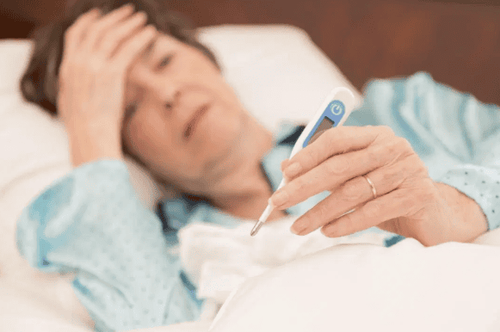
3. Night sweats treatment
To cure excessive sweating, your doctor will take steps to address the underlying cause. The treatment plan proposed will depend on the specific diagnosis of each case.
Menopausal night sweats Hormonal therapy is often suggested for female menopausal patients. This therapy works to reduce the number of hot flashes, as well as limit other symptoms. Your doctor may also prescribe other medications, such as gabapentin, clonidine, or venlafaxine, to control night sweats.
An underlying infection is the cause of the night sweats Your doctor may prescribe antibiotics, antivirals, or other medications to treat the infection and stop the excessive sweating.
Night sweats are caused by cancer Most likely the patient will receive a combination of chemotherapy drugs, surgery or different treatments. This way both helps to control the tumor well and limit the side effects caused by a certain cancer treatment.
Night sweats associated with current medications In this case, you will be dosed or recommended to take an alternative medicine. Anticholinergic drugs also work to reduce sweating, but should only be used when prescribed by a doctor.
Alcohol abuse, caffeine consumption or smoking are the root causes of night sweats
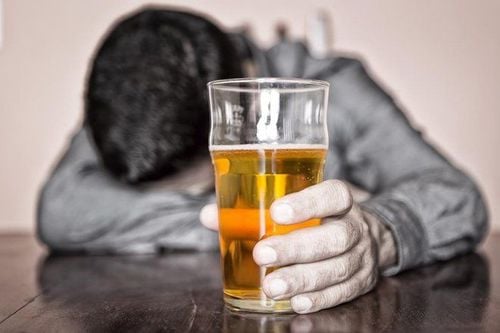
The doctor will advise the patient to limit or avoid these substances. In some cases, you will be prescribed medication or recommended therapy to help you quit smoking. In addition, medical experts also recommend that patients adjust their sleeping habits. Some tips to help prevent and reduce night sweats are:
Store in the closet, don't leave blankets on the bed Wear lightweight pajamas Open a window in the bedroom Use an air conditioner or fan Find a cooler room to sleep.
4. Prevent night sweats
There are several causes of night sweats that can be prevented. For example, to reduce your risk of night sweats, you should:
Limit alcohol and caffeine consumption Avoid tobacco and drug use Keep your bedroom well-ventilated and cool at night Do not exercise, eat spicy food, or drink warm water too close to bedtime Stick to a low-fat and low-sugar diet Perform relaxing breathing exercises before bed and after waking up Maintain a reasonable body weight Use antiperspirant for certain areas that get wet, such as armpits, hands and feet, hairline, back, chest, or groin Get medical attention quickly if infection or other illness is suspected
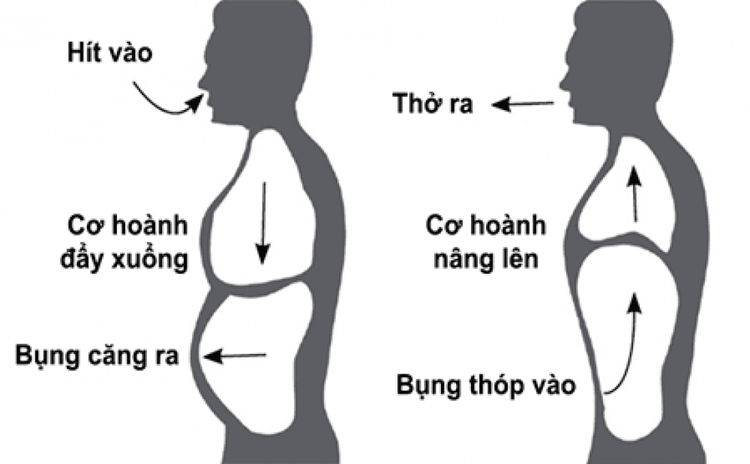
In general, you should ask your doctor to know more about your specific condition, as well as to have a cure for excessive sweating and appropriate prevention strategies.
Night sweats can be uncomfortable and disrupt sleep, but in most cases it's not a serious problem. Sometimes, the cause of increased sweating can be due to an underlying medical condition that requires treatment. Your doctor can help diagnose and recommend strategies to prevent or cure excessive sweating. Depending on the underlying cause of night sweats, patients will be advised to make lifestyle changes, medications, or other treatments.
Please dial HOTLINE for more information or register for an appointment HERE. Download MyVinmec app to make appointments faster and to manage your bookings easily.
References: .healthline.com, nhs.uk





